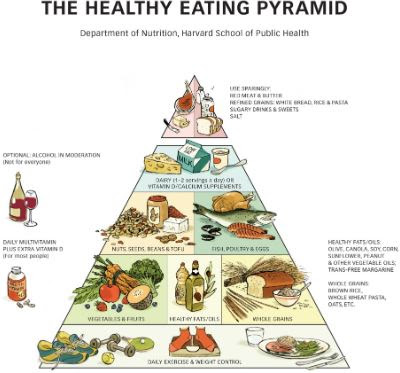The Paleo Diet May Be Harmful for Your Heart
- New research published in the European Journal of Nutrition found that people who follow the Paleo way of eating—lots of meat, vegetables and nuts while avoiding grains, legumes, and dairy—have nearly double the levels of a blood biomarker linked to heart disease than those who follow a typical diet.
- A low intake of whole grains may be responsible, since they tend to suppress the kind of bacteria in the gut that produces the biomarker.
- Past research has linked whole grains to a reduced risk of heart disease, cancer, and diabetes.
People who follow the Paleo diet often do so for health reasons, eschewing many carbs, especially grains, in favor of lean meats and vegetables. Now, research indicates that this “caveman” style of eating may have hidden dangers to your heart health.
The Paleo diet, which draws nutritional guidelines from the diets of our human ancestors, advocates eating like a hunter and gatherer—consuming lots of meat, vegetables, nuts, and some fruits—while excluding agriculturally-based foods such as grains, legumes, and dairy, along with refined sugar and processed oils.
Though no one would argue the nutritional merits of vegetables and lean protein, pulling whole grains out of the diet may have some harmful hidden consequences with regard to the gut microbiome and how it affects cardiovascular health, according to a new studypublished in the European Journal of Nutrition.
Researchers from Edith Cowan University in Perth, Western Australia, compared the gut microbiomes and levels of trimethylamine-n-oxide (TMAO)—a key blood biomarker strongly associated with heart disease—of 44 people who followed the Paleo diet for at least one year with a similar group of 47 people who followed the recommended Australian diet that includes whole grains.
They discovered that those who ate Paleo had levels of TMAO twice as high as their non-Paleo eating peers.
The reason? A lack of whole grains in the Paleo diet, lead researcher Angela Genoni, Ph.D., said in a press release.
“We found the lack of whole grains were associated with TMAO levels, which may provide a link between the reduced risks of cardiovascular disease we see in populations with high intakes of whole grains,” she said in the release.
The researchers also found higher concentrations of the bacteria that produce TMAO in the Paleo diet follower’s microbiome. Consuming whole grains may downregulate, or suppress, the species of bacteria that produce TMAO in the bowel, Genoni told Bicycling.
“The Paleo diet excludes all grains, and we know that whole grains are a fantastic source of resistant starch and many other fermentable fibers that are vital to the health of your gut microbiome,” Genoni said in the release.
In recent years, TMAO has emerged as an important independent cardiac risk factor. Two studies by Cleveland Clinic published in New England Journal of Medicine and Nature Medicine in 2013 found that high TMAO levels could predict the risk of a future cardiac event even in people who don’t have traditional risk factors that you’d find in other blood tests—think high levels of cholesterol or triglycerides.
The Cleveland Clinic team found that study participants with the highest levels of TMAO were 2.5 times more likely to have a major cardiovascular event like a heart attack, stroke, or death, than those with the lowest levels.
The researchers also found that populations of beneficial bacteria species were lower in the Paleo diet followers, an effect that was also associated with reduced carbohydrate intake. That “may have consequences for other chronic diseases over the long term,” Genoni said in the release
This echoes the findings of a 2016 meta-analysis of 45 studies published in the British Medical Journal that reported that whole grain intake was associated with a reduced risk of coronary heart disease, cardiovascular disease, cancer, diabetes, respiratory diseases, and death from all causes.
It’s also worth noting that a growing body of research, including a 2017 study in Nature that analyzed dental plaque from remains dating to the Paleolithic period, has confirmed that our ancestors from that time did include grains, tubers, and sugary fruits as dietary staples.
While no one advocates eating processed junk, fueling your rides with healthy whole grains may be good for your wattage as well as your cardiovascular and overall health—and may not be “anti Paleo” to boot.
Source: click here











Comments
Post a Comment